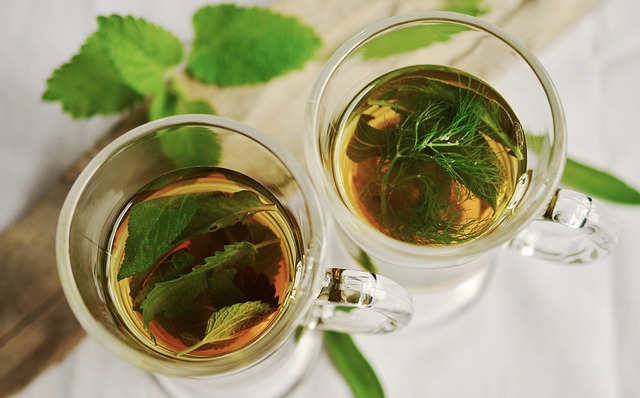The common cold is the most frequent acute illness in the Western world. About half of us get 1 cold per year.1 however, many adults average of 2-4 colds every year, and children may have 5-7 colds every year.2 Recurrent upper respiratory tract infections, such as the common cold can have a significant effect on productivity and quality of life.
If you don’t want to be that co-worker who gets everyone sick this winter, boost your immunity now with these 5 natural strategies.
Boost Your Immunity With Herbs
Herbal medicine can be a powerful way to boost your immunity and vitality this winter.
Astragalus is traditionally used in traditional Chinese medicine (TCM) as a general tonic and to enhance immune resistance in those experiencing recurrent colds and flu.3
Clinical data supports the use of Siberian ginseng as a preventative and restorative tonic for support of mental and physical wellbeing. Traditionally used in TCM for symptoms of weakness, exhaustion and tiredness, and during convalescence.3
Add Immune Boosting Nutrients
Long a winter favourite, vitamin C supports healthy immune function and can aid your chances of avoiding the common cold.4,5
Naturally acidic, high doses of vitamin C supplementation may cause stomach upset so look for a supplement that contains buffered forms of vitamin C such as calcium ascorbate and sodium ascorbate.
Zinc, a mineral found in foods such as meat, organ meats, oysters, shellfish, pumpkin seeds and nuts, has important functions in the body, including immune regulation6.
If your diet lacks zinc rich foods you can choose supplement and opt for an organic form, which is easier to absorb, such as zinc glycinate.7
More than 75% of the immune cells reside in the gut, so make sure you are supporting your gut microbiota (beneficial bacteria) with a healthy diet.
You can also choose a high-quality probiotic supplement, with scientifically researched strains of friendly bacteria, which may help support healthy immune function. 8,9
We’re more likely to be low in vitamin D during winter and this vitamin has been shown to play a vital role in immunity and protection against colds and flu. Several studies have linked low vitamin D levels with the risk of developing upper respiratory tract infections.10.
The leading authority on vitamin D, Dr. Holick, recommends 2000-3000 IU of vitamin D3 a day from dietary sources, sensible sun exposure and supplements.11
Recharge
Getting 7-9 hours of good quality sleep may help boost your immune function and reduce your chances of getting sick this winter.12
A recent sleep health survey conducted in Australia showed that up to 45 percent of Australian adults don’t get the recommended 7-9 hours’ sleep.13
If you have trouble sleeping, try a herbal formula with Ziziphus, Passionflower, Albizia and Polygala traditionally used in Chinese and Western herbal medicine to help promote deep, restful sleep.14
Eat For Better Immunity
If there’s one thing you can improve right now, it’s your diet, so include immune-boosting superfoods such as ginger, turmeric, garlic, onions, shitake mushrooms and fermented vegetables. These ingredients can help keep winter bugs away but also promote the health of the good bacteria in the gut.
Keep Moving
Regular movement and moderate levels of exercise, on most days, have a number of health benefits that include boosting your immunity.
During the colder winter months opt for exercising outdoors as much as possible to increase your exposure to sunlight for the extra vitamin D boost.
Speak to your healthcare professional before taking any herbal products or supplements. Always read the label and use only as directed.
You can find much more information on living a holistic lifestyle in these free magazines and on our YouTube channel.
Erika is a qualified Naturopath and Holistic Nutritionist. She has over a decade of experience working within the natural therapies industry and continues to educate herself to grow her expertise.
She is part of the technical services team at Fusion Health, providing expert advice to consumers, practitioners and retailers alike. She is especially passionate about empowering and supporting women to live a nourished, fulfilled life.
References:
- Kirkpatrick, G. The Common Cold. Primary Care: Clinics in Office Practice. Science Direct. Volume 23, Issue 4. December 1996.
- Turner, R. B. The Common Cold. Paediatric Annals. December 1998- Volume 27.12: 790-795
- Available upon request
- Available upon request
- Van Straten M, Josling P. Preventing the common cold with a vitamin C supplement: a double-blind, placebo-controlled survey. (PMID: 12201356)
- Rerksuppaphol S, Rerksuppaphol L. A randomized controlled trial of chelated zinc for prevention of the common cold in Thai school children. Paediatr Int Child Health. 2013 Aug; 33(3):145-50.
- Available upon request
- The role of intestinal microbiota and the immune system. Eur Rev Med Pharmacol Sci. 2013 Feb; 17(3):323-33.
- Available upon request
- Vitamin D Council 2014, https://www.vitamindcouncil.org/health-conditions/respiratory-infections/, last visited 07/05/1018
- Holick, M.F. Vitamin D Deficiency. New Engl. J. Med. 2007. 357:266-81.
- Opp, M. R. and J. M. Krueger (2015). “Sleep and Immunity: A Growing Field with Clinical Impact.” Brain, behavior, and immunity 47: 1-3. (PMID: 25849976)
- Sleep Foundation 2015, https://www.sleephealthfoundation.org.au/public-information/fact-sheets-a-z/230-how-much-sleep-do-you-really-need.html, last visited 07/05/1918
- Available upon request






